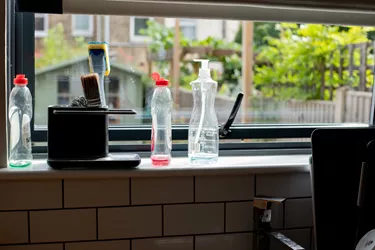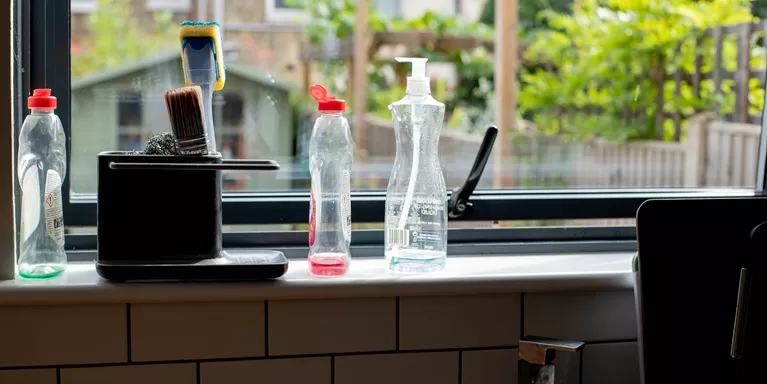Caring for my husband with bipolar
Kate, who recently appeared in our new video on coping as a carer, blogs about what's it like managing her mental health whilst caring for her husband.
Like most people, I never intended to be a carer. I always knew it might happen but in fact, I was just as likely to be cared for as to do the caring.
My husband and I both have bipolar disorder so it seemed inevitable that we'd have to rely on each other at times. Then, a couple of years ago, he entered a severe and debilitating depression.
We saw it coming. He kept asking for help but kept slipping through the cracks of a broken and overstretched mental health trust. As he sank deeper into life-changing despair, I fought his corner for him.
Soon I was fighting to keep him going. It wasn't until his (long-awaited) mental health team referred to me as his carer that I realised I was. I always thought a carer was someone who carried out the physical activities necessary. It hadn't occurred to me that while I helped him with the day-today things he found overwhelming, I also was mentally his carer too. I was combating his negativity ever day, trying to cajole him into keeping going.
"Caring is lonely. It is an unrelenting task."
Caring is lonely. It is an unrelenting task. Considering the majority of caring is carried out by those looking after a spouse, parent or child, there's the added pain of watching someone you love suffer.
I consider myself hugely lucky in that I have a network of friends - both close by and online - who listened to me and were there for me. I will never forget how moved I was when I was surprised by an online shopping delivery - our friends had clubbed together and sent us wonderful food and drink to enjoy.
My work was incredibly supportive when I told them. I'm fortunate in that much of my job is flexible. Although I didn't need to use them, there are employment rights for carers. In a way, work was respite for me. I love my job and although it was very stressful and I was exhausted at times, having something other than my home life to focus on was a relief.
"I was once the one who was cared for."
I was once the one who was cared for. Just over ten years ago, my then-partner bore the task of pulling me through the lowest point I have ever experienced. I wouldn't be alive if it wasn't for him. Looking back from where I am now, I see how hard and lonely it was for him. Our relationship didn't survive: we lost the balance and dependency crept in.
My husband's depression has definitely lessened, thanks to new combinations of medication. While things aren't quite back to normal, they're still so much better. My role is no longer solely that of carer. While I still look out for him, he's at the point of being able to look out for himself again. I'm learning to back off and let him.
"I took part in the Mind videos because I wanted to let others know that caring is lonely and exhausting but that help is there."
I took part in the Mind videos because I wanted to let others know that caring is lonely and exhausting but that help is there. My GP's surgery has a carers' network that links people to the support that they need and that provides practical help, like a free annual flu jab.
Respite is possible - and necessary. You can't give your all as a carer - you just can't. You have to save a bit of yourself just for you. I love running and being able to get out for half an hour each evening allowed me to clear my head and relax.
Everyone I met while making the videos for Mind inspired me. Everyone had a story to tell, with common themes weaving through it. We spent a lot of time agreeing with each other - we all shared the same feelings and faced the same issues, no matter the circumstances.
Caring for someone with a mental health condition is hard. The invisibility of the illness can make it feel like you're not a "real" carer. Trust me: you are. And you're making a huge difference to someone's life.
Watch Kate's video
Kate along with fellow carers Chloe and ally talk about what it's like to care for someone with a mental health problem and how they have learned to cope.


Information and support
When you’re living with a mental health problem, or supporting someone who is, having access to the right information - about a condition, treatment options, or practical issues - is vital. Visit our information pages to find out more.
Share your story with others
Blogs and stories can show that people with mental health problems are cared about, understood and listened to. We can use it to challenge the status quo and change attitudes.

















